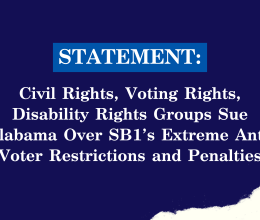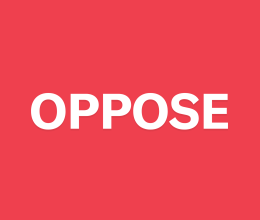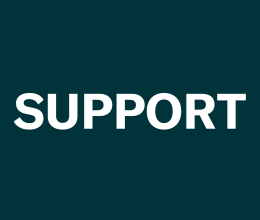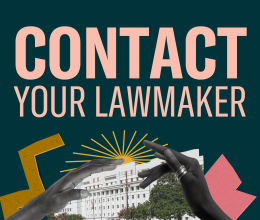
Washington, D.C. — In a victory for voting accessibility across Alabama, the Alabama NAACP (AL NAACP), Greater Birmingham Ministries (GBM), and the League of Women Voters of Alabama (LWVAL) have successfully defended the rights of absentee voters who are disabled, blind, and low literacy to receive the help of anyone of their choice ahead of the 2024 elections in the absentee application process. The organizations are represented by Campaign Legal Center (CLC), the Legal Defense Fund (LDF), Southern Poverty Law Center (SPLC), the American Civil Liberties Union of Alabama (ACLU AL), and Alabama Disabilities Advocacy Program (ADAP).
Siding with civic engagement groups and their constituents, a federal district court ruled today in the case of Alabama NAACP, et al. v. Marshall that SB 1’s key restrictions on absentee application assistance likely violate Section 208 of the Voting Rights Act. Section 208 required that blind, disabled, or low literacy voters have the ability to receive help from anyone of their choice. Today’s preliminary injunction means that while the lawsuit continues, SB 1’s key criminal sanctions cannot be enforced against disabled, blind, or low literacy voters or against their chosen assistors.
In response to the ruling, Plaintiffs and their attorneys have released the following statement:
“Nonpartisan civic engagement groups — composed of civic-minded, democracy-loving, everyday Americans — do the hard work of fighting to ensure that every American can access the fundamental freedom to vote. We’re glad that the district court has sided with the rights of the voters and is committed to promoting voting accessibility. Our democracy works best when everybody can participate in it, and this ruling prevents the enforcement of a cruel law that would have suppressed the voices of blind, disabled, and low literacy voters. We’re proud of this victory, and we will continue to fight to ensure that all Alabamians can easily exercise their right to vote.”


